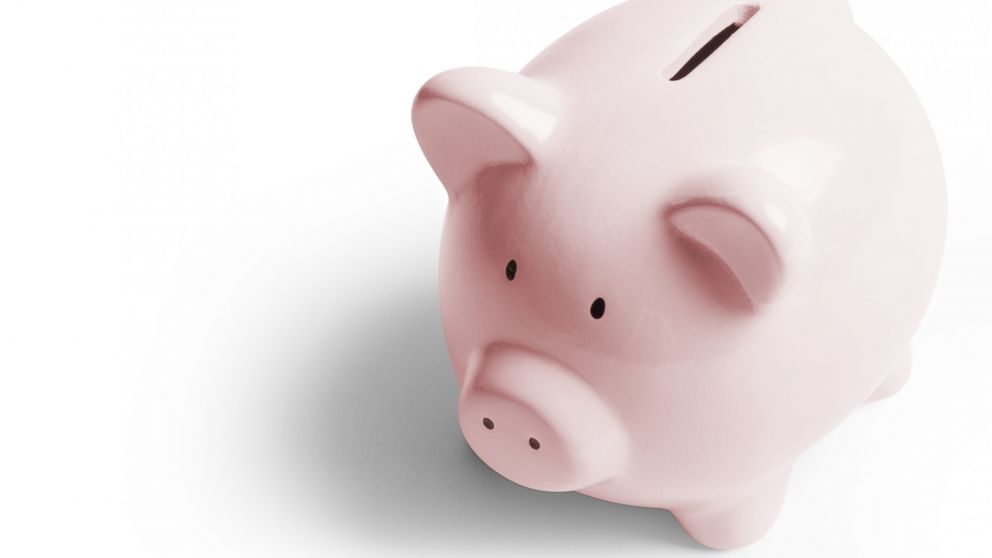'I Have Never Been So Happy to Be Broke': How 1 Family Paid Off $100K of Debt in 2 Years
Brett Carrington left medical school with $75,000 in debt but no degree.

— -- About four years ago, Brett Carrington left medical school with nearly $75,000 of student loan debt. That isn't that much, compared to some med students. The problem was he left with debt and no degree, leaving him without the lucrative career path that could make such a large debt load tolerable.
"Medical school didn’t work out, and I was pretty crushed about that because we didn't really have a backup plan, but we still had all the debt," Carrington, 30, said. His wife, Chelsey, also had $15,000 of debt from nursing school, and they each only made $10 an hour at their jobs. "That wouldn't even pay the interest on the loans," he said. "We eventually ran out of money."
His parents offered to let them move into their house, but the cross-country relocation meant they had to leave their jobs and add to their debt (they put the moving expenses on credit cards). Still, it was the best option.
"So we moved back into my parents' basement, now 100 grand in debt, no jobs," Carrington said. He felt depressed and hopeless, wondering how he could get on top of this mountain of debt they had accumulated. He thought perhaps he could go for another advanced degree to improve his earning potential, but as he applied for graduate schools, he realized he would need to take out more student loans to make it work. He didn't want more debt — he wanted out of it.
More From Credit.com: How to Consolidate Student Loans
"The thought of another dollar of debt made me ill," Carrington said. "I saw this YouTube video of this guy who says, 'If you want to be successful as much as you want to breathe, you’ll be successful.'" So, he put himself to work in search of that success.
From Med School to Headband Salesman
Carrington always liked working with his hands, so he started his business by making things. The first product he sold was a headband — elastic with a bow attached — that he made for the cost of $1 and sold for $2.
The business started out as a way to supplement the income Chelsey brought home from her new nursing job and a way to keep things afloat while he researched graduate school. It quickly became clear that focusing on the business, not going back to school, was the path to success.
That business helped him and Chelsey pay off that six-figure debt in about two years. They made their last student loan payment in September.
When the headbands continued to sell well (his company started as an Etsy shop), he started making earrings. The crafts expanded into a full-fledged online store, CocaLily Boutique, which generated enough business for Chelsey to leave her nursing job and run the shop with Brett. Chelsey and Brett grew their business to the point where they no longer just make headbands, but in addition buy wholesale inventory and sell it with the help of their employees.
How They Paid Off The Debt
It wasn't just a successful business that pulled Brett and Chelsey out of debt, and it wasn't an easy journey. They lived with Brett's parents for a while, but his parents moved, and they had to find a place of their own, adding to their expenses. They found a place for $500 a month that met their needs (they live in Utah), and kept their budget tight: rent, food and phone bills. Everything else went to loans.
Their business outgrew the apartment, but they managed to get enough space and keep their rent to $1,000.
More From Credit.com: How to Pay Off Credit Card Debt
"Our goal was every month to give $6,000 to loans," Carrington said. "We don’t eat out. We don’t buy nice things. We shop at thrift stores. We buy $20 cellphones that are used, and we spend $15 a month on the plan. We just cut expenses as much as we can."
When they had $15,000 of loans left to pay, the Carringtons had enough saved up to get rid of them. They cashed out their emergency fund and put off buying inventory to make it happen, but Brett said he's never been so happy to be broke. With the business continuing to do well, they're focusing on rebuilding their emergency fund and saving up for a house and their son's education.
Looking back, Carrington said the hardest points in paying off debt were at the beginning, when things felt hopeless, and when they had about $30,000 left, when they had come so far but felt frustrated by the remaining debt.
More From Credit.com: 3 Strategies for Consolidating Debt
"There were times I wanted to give up and I just wanted to go spend a bunch of money," he said. He combatted his feelings of doubt by focusing on his son and the future he wanted for him, as well as watching YouTube videos and listening to audio books on success and motivation. "I go look for it and I get that motivation back, but it’s a very active process."
The Carringtons' advice for anyone trying to pay off debt: Do the math. Their initial goal was to pay off the loans in a year, so they sat down and figured out how much they had to make each day to do that. It brought the goal into the present, rather than something they hoped to finish in the distant future.
"You have to believe it’s possible," he said. "You have to set the goals, then you have to plan out how to achieve them."
Any opinions expressed in this column are solely those of the author.




